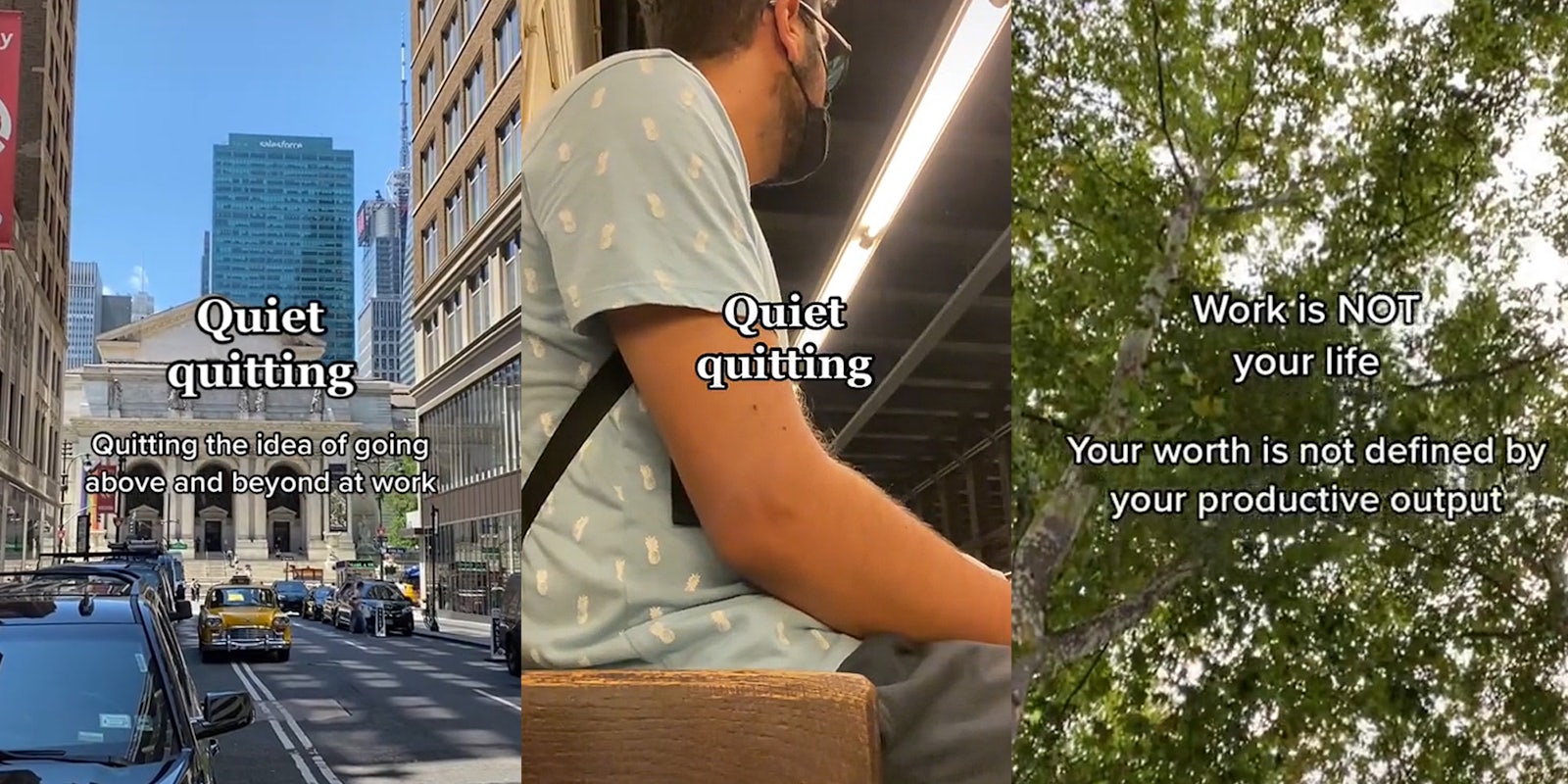According to Apollo Technical, 65% of Americans are satisfied with their jobs, with 20% of that bunch stating that they’re passionate about their vocations. But that leaves 35% of people who aren’t so thrilled about the idea of going into work. And when you consider that the entirety of the U.S. workforce is reportedly comprised of 157.53 million people, that means 55,135,500 people are unhappy with what they’re doing.
This could be why there’s a counter-culture movement against “hustle culture,” where throngs of “young people [are] pretending to love work,” according to the New York Times. In recent years, there’s been a growing disillusionment of devoting oneself entirely to a job in the hopes that such industriousness and consistent demonstrated competence will culminate in workplace advancement, higher salaries, and personal fulfillment.
A now-viral TikTok from user @zkchillin touches on the phenomenon of succumbing to the idea that being an over-achiever at work is ultimately a pointless endeavor as well as not allowing one’s labor to define their existence. This notion is defined by a simple phrase: “quiet quitting.”
The TikToker narrates in the video: “I recently learned about this term called ‘quiet quitting,’ where you’re not outright quitting your job but you’re quitting the idea of going above and beyond. You’re still performing your duties but you’re no longer subscribing to the hustle culture mentality that work has to be your life. The reality is it’s not, and your worth as a person is not defined by your labor.”
@zkchillin On quiet quitting #workreform ♬ original sound – ruby
The TikToker claimed in the comments section that quiet quitting “works best if you can tolerate your job.”
“If you’re miserable, get outta there!” @zkchillin added. “Your peace of mind comes first.”
The TikTok was viewed over 830,000 times and prompted tons of responses from commenters. Some folks stated they’ve taken this same approach to their jobs, with many saying the pandemic is what spurred this realization and that it has helped mitigate stress. (The BBC in 2021 reported that there were throngs of folks losing interest in their jobs during the pandemic.)
“I quiet quit 6 months ago and guess what, same pay. same recognition, same everything but less stress,” one said.
“Oh that’s what I’ve been doing. I’m meeting expectations that’s it,” another wrote.
“Then when you do it you realize nothing at work matters and suddenly all the stress vanishes,” a third claimed.
Others claimed that quiet quitting eventually led them to fully quitting. “Did this a few months ago, full quitting tomorrow though. They tried me,” one said.
“Quiet quitting was the gateway to the full send quitting for me,” another wrote.
Some remarked that in other parts of this world, this approach to work is the norm, while others pointed out that “quiet quitting” is not a new concept.
“I’ve just called this ‘doing the bare minimum’ and i’ve been doing it for a looonnnnggg time now,” one said.
“This isn’t quiet quitting this is just being a normal person,” another wrote.
“Americans live to work, Europeans work to live. Point is, I think this concept is particularly important for Americans (as an American now in Europe),” another said.
There were also some who said that adopting this kind of mentality at their jobs ultimately ended up getting them fired.
“I stopped going above and beyond and ended up getting fired because I ‘wasn’t passionate’ about the brand anymore,” one shared.
The Daily Dot has reached out to @zkchill for comment on TikTok.


